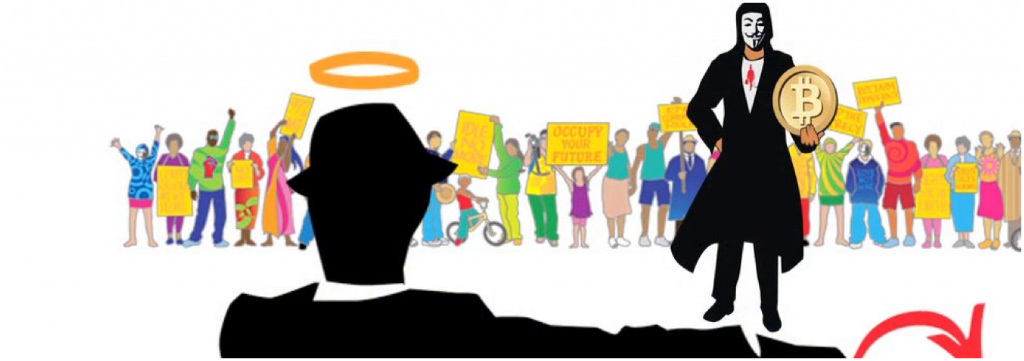This guide is a continuation of a previous article at http://bitcoinmagazine.com/13104/building-bitcoin-economy-stimulate-adoption/
If you or someone in the area has been preaching crypto for a while, you probably have a few nearby businesses accepting Bitcoin by now. This is an important first step, and worthy of celebration over a few Bitcoin beers. Bitcoin evangelism never sleeps, however, so it’s time to grow the seeds you’ve sown into a sustainable Bitcoin economy. But before you get started, heed what I’ve learned from my latest efforts.
When you first bring cryptocurrency adoption to a community, it’s necessary to rely on promises of publicity, delivered in the form of organized events and media attention. The novelty will soon wear off, however, and you can’t volunteer to promote them forever. The Bitcoin economy needs to learn how to operate without the training wheels you’ve provided, and become stable on its own.
There are two main obstacles to accomplishing this. One is that a Bitcoin enthusiast drawn to a Bitcoin venue or store might not want to spend his or her bitcoins, due to the hoarding instinct. To an extent, this can be remedied by providing discounts: if people save enough money by using Bitcoin, it counteracts the cost of repurchasing their spent bitcoins. Unless the customers are lazy, apathetic to profit, and unconcerned with legitimizing cryptocurrency, this should alleviate the symptoms.
The bigger obstacle, however, is that many Bitcoin businesses are converting their bitcoins to cash. In contrast to commodities, a currency needs to have “velocity,” which is the rate at which it changes hands within the system. We need to “close the loop,” the point where you can pay a bitcoin to someone, who pays it to someone, who pays it to someone (and so on) until you eventually accept that bitcoin for your own good or service–just as with dollars, except now they can’t be arbitrarily printed by the government.
That’s what money is, and if you’re reading this guide, you’d probably rather it be created in a decentralized manner. Even if you think Bitcoin’s not a viable transactional currency due to deflation, slow block generation, etc, Bitcoin is what the public knows; so long as it’s leading the charge, we have to promote it as a currency. Once we’ve used Bitcoin to prove the viability of non-state currency, we can resume debates about whether to improve or change the system.
Many argue that the ideal way to go about this is by convincing employers to pay employees in Bitcoin. For example, the Co-op directors who run QuadrigaCX offer free conversion to the employees of merchants who do so. This is certainly a good idea, but neglects the root of the problem–it’s impossible (and illegal) to force this upon them. We could give bonus bitcoins to employees who accept, but most won’t accept a full salary in Bitcoin until it’s a more useful and stable currency, which brings us back full-circle. Even if employees do accept, they’re selling their bitcoins, which is a good exposure method, but not effectively closing the loop.
Before mass adoption, the other intermediary step we’re missing is the suppliers. Mainstream consumer demand for a new currency is still lacking due to ignorance, but business-to-business marketing and advertising (B2B) is a huge industry. I’ve spoken with many existing alternative currency gurus, like Steve Dale and Scott Berg here in Canada, and the majority of their business occurs in such a fashion. In addition to getting the coins flowing, this will continue to spread Bitcoin adoption throughout the business world, which is what the public is going to wait for.
If we’re to get as many businesses trading bitcoins as already trade things like Barter or Seedstock, we need to frame it the same way. Bitcoin needs to be a way for them to find leads, connecting producers to consumers. That’s the stage of the game we’re at in Bitcoin-friendly cities like Vancouver and others, and if you have enough merchants, it shouldn’t be too hard: since it’s still relatively novel, businesses engaging in such a practice will be subject to some publicity and fans for doing so. Once you get them started, they’re unlikely to stop so long as marketing companies continue charging huge finders fees for the same service.
That’s all good in theory, but how will it work in practice? In the process of writing this article, I reached out to Rollingdale Winery, which accepts Bitcoin for their organic wines. I explained to them that Bitcoiners would love to know that if they order Rollingdale at a pub in Vancouver, their bitcoins aren’t just going to an exchange to be sold. Local pubs are more than happy to carry an authentic Bitcoin beverage and advertise the fact, and several carry Rollingdale, already.
The results? We’re having Canada’s first real Bitcoin wine tasting this month, with Bitcoin wine at a Bitcoin establishment. Seating is limited; if you want to learn more or reserve a space, check it out at http://www.meetup.com/BitcoinCoop/events/192281872/
This how-to guide is part of a series written by director Andrew Wagner on behalf of the Bitcoin Co-op. The author is not compensated by any businesses mentioned in this article, except with the joy he gets from undermining the traditional financial system. If you want more information, or to join our non-profit advocacy movement, reach out at a.j.wagner.89@gmail.com. Stay tuned for part 3: How to Make the Transition.
The post Building a Bitcoin Economy: How to Close the Loop appeared first on Bitcoin Magazine.














